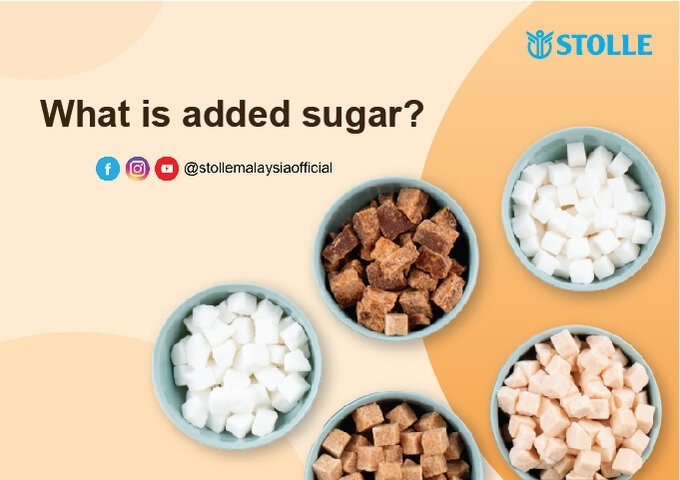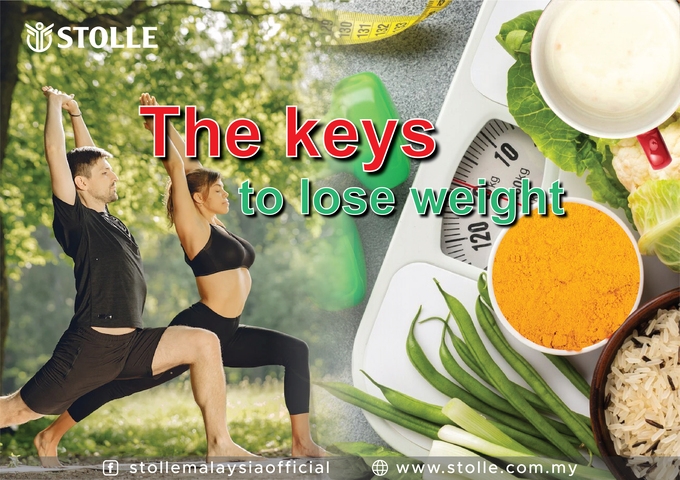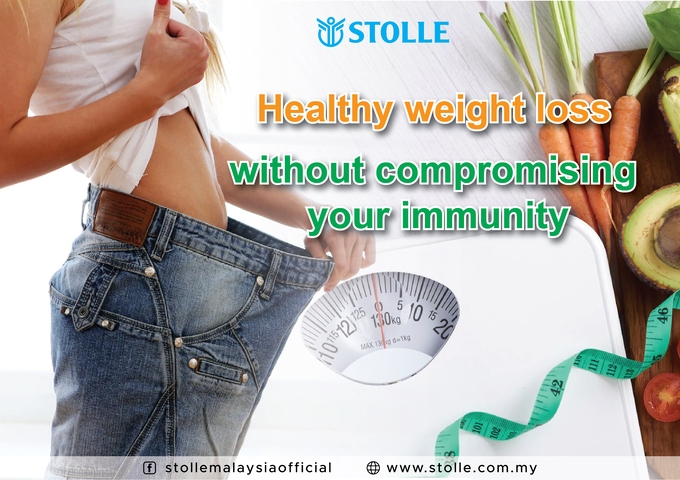Stay Healthy in Holiday Season The holiday season is always filled with good foods, fun activities, and great memories with family and friends. While enjoying and relaxing in this season, it’s easy to get a little lax on the healthy eating and exercise that we typically maintain which lead to disease or weight gain. Brighten the holidays by making your health and safety a priority. With a few tricks, it’s possible to keep you and your loved ones safe and healthy year-round, and ready to enjoy the holidays. Add more vegetables We always have an insufficient intake of fruit and vegetables during the holiday season. Increasing the number of vegetable dishes on the dinner table and finding small twists to dress them up without making them unhealthy is a smart trick to ensure the intake of vegetables. When in doubt, start your meal with a bowl of salad or a vegetable-based appetizer earlier in the afternoon. This will help you make sure get the vegetables you need instead of filling up with snacks or desserts. Find healthy alternative dishes on your favourite dishes A small modification could allow you to enjoy your favourites dishes in a healthy way. For example, reduce the use of butter, oil, and processed food in your meal; Wholegrain instead of white rice or noodles; bake the meat instead of deep frying it. These simple tricks may keep your favourite on your plate without the excess calories. Besides, canned, processed, and premade foods are full of excess salt and sugar that you can avoid by making the dishes yourself. Reduce your sodium intake by making your own cream of mushroom soup and reduce your sugar by making your own strawberry sauce. Stay Hydrated Water accounts for 60% of our body’s total weight and we need to stay hydrated in order to maintain this ratio. Ensure you take a few moments throughout the day to drink plain or infused water. You can also set reminders to drink more water or record your daily water intake using an app or the alarm on your smartphone or smartwatch. If you are consuming alcohol, try alternating glasses of water between your cocktails. Watch your portion size Overloading your plate is a norm during the holiday season, and this tends to gain weight more easily as compared with those able to control their portion size. Therefore, the best way to overcome this is to take your meal at a slower pace, listen to the “I’m full” signal, don't attend a party on an empty stomach as it makes you prone to overeating, or use smaller plates. Stay active Sedentary activities such as sitting on the couch watching TV, are common holiday traditions for many families. Inactivity may contribute to weight gain, especially if accompanied by overeating. Doing some type of physical activity with your family may prove beneficial for weight control. Even something as simple as a family walk can get your mind off food and allow you to bond with your loved ones. Get enough sleep Sleep deprivation, which is quite common during the holidays, may cause weight gain. This is because those who do not sleep enough tend to be hungrier, consume more calories, and exercise less. Additionally, inadequate sleep has been linked to lower metabolism. This may be caused by alterations in your circadian rhythm — a biological clock that regulates many of your bodily functions Lastly! Don't forget to take your ImmNuPlus or ImmNuPro everyday to balance your immunity to create a better healthy life in year 2023! Eating well and staying healthy can be difficult over the holiday season, but that doesn’t mean it’s impossible. By maintaining your physical and mental health with some of the easy tips in this article, you’ll be able to start the new year off strong. And lastly, don’t forget to enjoy your Holidays!
more


Tips for 2023 New Year’s Resolution Are you making a resolution in the new year? At times, people who make New Year's resolutions aren't always able to maintain them. About 77% of individuals with the resolutions may give them up in less than a month. Here’s how to identify the right resolution to improve your life, create a plan on how to reach it, and become part of the small group of people that successfully achieve their goals. Start with a small target Start practicing healthy habits such as eating more nutritious foods, quitting cigarettes, cutting back on alcohol, reducing stress, and sleeping better are the most common New Year’s resolutions. Instead of setting unrealistic goals such as reducing 10kg of fat within a month, we should start with a small target that is definable and accompanied by a solid plan. Plan Ahead Making new year’s resolutions is no walk in the park. Learning how to keep new year’s resolutions is even harder. To make a long-lasting change in your life, prepare yourself for the challenges you might face. “Think about why you want to make the change.”, research the change you’re making and plan ahead, so you have the resources available when you need them. Tracking your progress There’s nothing more motivating than seeing how far you’ve come. Monitoring yourself might feel like a burden, but thanks to technology, this has become easy to do. Use an app to check off the days where you have worked towards your goal and record the whole journey. Reviewing all the efforts you have made is a great strategy to motivate yourself. Accept Failure Failure is normal. There’s nothing wrong with occasional slips. Make a note of the triggers and bad habits that caused this setback and vow to learn a lesson from them. Perseverance is the key to success. Set goals try again, keep trying and you will succeed. Plan your rewards Small rewards are a great encouragement to keep you going during the hardest first days so make sure to master this step in how to make a new year resolution. Small rewards such as watching a movie or a short getaway once you have successfully made a change. The reward can change monthly or something that you’ll look forward to which could motivate you. A lot of resolutions fail because they’re not the right resolutions. And a resolution may be wrong for one of three main reasons: It’s a resolution created based on what someone else (or society) is telling you to change. It’s too vague. You don’t have a realistic plan for achieving your resolution. Your goals should be smart — and SMART! Now that you know how to make a new year resolution, you are one step closer to achieving your goals. Be a brand new you in 2023! Immune Today, Health Everyday!
more
What is added sugar? The World Health Organisation (WHO) recommends that added sugar be limited to not more than 10% of our daily energy consumption. Therefore, the average amount of added sugar intake for adults inclusive of hidden sugar should not exceed 10 teaspoons a day (50g). But what is added sugar? Added sugars are sugars that are added to foods and beverages when they are processed or prepared. White sugar, brown sugar, corn syrup, and glucose syrup which are commonly used in daily life are all added sugars. These added sugars are mainly used in the production of soft drinks, yogurt drinks, fruit juices, packaged drinks, as well as foods such as desserts and candies. Some added sugars are also used in daily cooking, tea making, and pastries. The source of added sugar varies depending on the sources and consuming too much can damage your health. Why is added sugar a problem? Foods and beverages with added sugars will contribute extra calories to your diet but provide little nutritional value. Eating too many foods with added sugars increases the risk of potential health problems, such as: Poor nutrition. If you choose sugar-laden foods instead of more nutritious foods, insufficient important nutrients, vitamins, and minerals obtained from your daily diet. Weight gain. There's no single cause for being overweight or obese. But added sugar might contribute to the problem. It's easy to get extra calories when eating foods that are sugar-sweetened. Increased triglycerides level. Triglycerides are a type of fat in the bloodstream and fat tissue. Eating an excessive amount of added sugar can increase triglyceride levels, which may increase your risk of heart disease. Tooth decay. Sugar promotes tooth decay by allowing bacteria to multiply and grow. The more often you eat or drink foods with natural sugar or added sugar, the more likely you are to get cavities. How to reduce the intake of added sugar? Recognize added sugar Sugar goes by many names, depending on its source and how it was made. Increase the difficulty to recognize added sugar from food. Check for ingredients ending in "ose" — that's the chemical name for many types of sugar, such as fructose, glucose, maltose, and dextrose. Here's a list of other common types of added sugars: Cane juice and cane syrup Corn sweetener and high-fructose corn syrup Malt Maple syrup Fruit juice concentrate and nectar Honey Molasses Reduce the added sugars in your diet, try these tips: Drink water, other calorie-free drinks, or low-fat milk instead of sugary sodas or sports drinks, and coffee with added sugar. Choose 100% fruit juice, not juice drinks with added sugars. Better yet, eat the fruit rather than drink the juice to get the fiber as well. Choose breakfast cereals with less sugar. Skip sugary and frosted cereals. Opt for reduced-sugar varieties of syrups, jams, jellies and preserves. Choose fresh fruit for dessert instead of cakes, cookies, pies, ice cream and other sweets. Buy canned fruit packed in water or juice, not syrup. If you do purchase fruit packed in syrup, drain and rinse it with water to remove excess syrup. Choose nutrient-rich snacks such as vegetables, fruits, low-fat cheese, whole-grain crackers and low-fat, low-calorie yogurt instead of candy, pastries and cookies.
more
Sugar is one of the major sources of energy. From break-room doughnuts to healthy-looking packaged foods, the sweet stuff is all around us, and it’s all too easy to indulge. But sugar could be wrecking your health, whether you realize it or not. There are two types of sugars in foods: naturally occurring sugars and added sugars. Naturally occurring sugars are found naturally in foods such as fruit (fructose) and milk (lactose). Added sugars include any sugars or caloric sweeteners that are added to foods or beverages during processing or preparation (such as putting sugar in your coffee or adding sugar to your cereal). Added sugars (or added sweeteners) can include natural sugars such as white sugar, brown sugar, and honey, as well as other caloric sweeteners that are chemically manufactured (such as high fructose corn syrup). Although sugars are not harmful in small amounts to the body, our bodies don’t need added sugars to function properly. Added sugars contribute additional calories and zero nutrients to food. To complicate it further, added sugars can be hard to spot on nutrition labels since they can be listed under a few names, such as corn syrup, agave nectar, palm sugar, cane juice, or sucrose. Sugar contributes to the development of several diseases, it is typically associated with weight gain, but the problems don’t stop there. Even if your daily sugar consumption fits into your caloric needs, a high-sugar diet puts you at increased risk for heart disease, type 2 diabetes, arthritis, and Alzheimer’s disease. It also increases your odds of developing mental health problems like depression and anxiety. The World Health Organization (WHO) recommends: Adults and children should reduce their intake of sugar to less than 10% of their total daily energy intake. Taking adults with 2000 calories daily intake as an example, it is about 12 teaspoons (50 grams) of sugar. However, based on the statistic, each Malaysian consume about 26 teaspoons of sugar per day, and around 3kg of sugar per year in the form of sugary drinks, which is about 2 times higher than the recommended intake. Hence, we shall alert on our daily sugar consumption to avoid disease. How to kick sugar addiction away, do this for 10 days for a quick, powerful detox. Stop all forms of added sugar: white flour, artificial sweeteners, hydrogenated fats, MSG, and pre-packaged foods Don’t drink your calories: No sweetened teas and coffees, and no juices other than green vegetable juice. Add protein to every meal. Include eggs, nuts, seeds, fish, chicken, or meats. Eat the right carbs. Choose wholegrain, root vegetables, and only non-starchy veggies: asparagus, green beans, mushrooms, onions, zucchini, tomatoes, fennel, eggplant, and peppers. Include good fats at every meal. Go for nuts and seeds, avocado, and fish, which offer omega-3 fatty acids. Manage your stress. When you’re stressed, your cortisol shoots up. This will drive up your hunger and can fuel sugar cravings. Sleep. If you get less than 8 hours a night, it can drive you to eat more calories You can break the sugar habit. Doing a detox doesn’t mean you never eat another cupcake. But it does give you control over your cravings — and your health.
more
What is Chronic Fatigue Syndrome? Chronic Fatigue Syndrome, also known as Myalgic Encephalomyelitis (ME/CFS), is characterized by extreme fatigue or tiredness that doesn’t go away with rest and can’t be explained by an underlying medical condition, both physically and mentally. Chronic Fatigue Syndrome, CFS is defined as debilitating fatigue for 6 months above that does not improve with rest and by excluding all possible chronic causes such as cancer, autoimmune disease, chronic infection, etc., which eventually affect the patient's work, life, or study. You should be aware if you hit 4 or more signs or symptoms from the below physician evaluation: Symptoms: Memory or attention deficit Extreme fatigue after labor (no improvement for more than 24 hours) Sleep still does not improve fatigue Muscle ache Non-inflammatory polyarthralgia Headache of a different type or severity than before recurring sore throat swollen lymph nodes in the neck or armpit Cause of Chronic Fatigue Syndrome The cause of chronic fatigue syndrome is still unknown. Some people may be born with a predisposition for the disorder, which is then triggered by a combination of factors. Potential triggers include: • Infectious diseases There are studies suggest CFS might cause by viral infections such as Epstein-Barr virus, cytomegalovirus, Lyme disease, or Candida. However, there is no evidence or conclusive link has been found. Some people who recover from COVID-19 infection are "chronic patients" with persistent symptoms. Some of these symptoms are the result of organ damage from infection and/or treatment, while others may be caused by post-traumatic stress disorder (PTSD). Additionally, in some people, COVID-19 appears to trigger the classic chronic fatigue syndrome. Currently, data and information on the long-term effects of COVID-19 are limited, so further research is needed to determine whether some patients with delayed recovery develop chronic fatigue syndrome. • Immune dysfunction The immune systems of people who have chronic fatigue syndrome appear to be impaired slightly. 65% of CFS patients report a history of allergies, but there is still no evidence to link allergies and CFS, and no serious immune disorder issue has been reported. Hormonal imbalance or psychiatric disorders have not been shown to cause CFS as well. • Genetic and environmental factors Chronic fatigue syndrome appears to run in families, with possible genetic components or environmental triggers. Alternatively, family members have similar responses to physical and psychological stress and/or exposure to the same substances. How to treat chronic fatigue syndrome? There is no cure for chronic fatigue syndrome. Treatment focuses on symptom relief. Basic antidepressants and sleep aids can reduce the patient's discomfort and improve sleep quality. In addition, a healthy diet high in fibre, low in fat and calories, physical feedback training, cognitive behavioural therapy, and even meditation or yoga may help reduce symptoms. In principle, it is necessary to completely adjust and change the patient's lifestyle.
more
Pinktober, turning PINK with us. Symbolized by a simple pink ribbon, Pink October (or known as Pinktober) which was founded in 1985 by the American Cancer Society and the pharmaceutical company now known as AstraZeneca, aims to raise awareness of breast cancer among women and to encourage them to step up their efforts in early detection of cancer as well as signs and symptoms. According to the World Health Organisation’s Global Cancer Observatory (Globocan) 2020 findings, among 25,587 cancer cases in women, about 32.9% of new cases of breast cancer were diagnosed. Breast cancer is the top cancer case among all single cancer types faced by women. What is breast cancer? Breast cancer is a disease in which breast cells grow out of control. A breast is made up of three main parts: lobules, ducts, and connective tissue. Breast cancer can begin in different parts of the breast and mostly begin in the ducts or lobules. What are the symptoms of breast cancer? Different people have different symptoms of breast cancer. Some peoples do not have any signs or symptoms at all. However, there are some warning signs from breast cancer as below: New lump in the breast or underarm (armpit). Thickening or swelling of part of the breast. Irritation or dimpling of breast skin. Redness or flaky skin in the nipple area or the breast. Pulling in of the nipple or pain in the nipple area. Nipple discharge other than breast milk, including blood. Any change in the size or the shape of the breast. Pain in any area of the breast. What Is Breast Cancer Screening? We can’t prevent breast cancer, but here are three important steps to detect it earlier. Breast Self-Exam Clinical Breast Exam Mammogram Healthy Habits to Reduce Risk Many factors can influence your breast cancer risk. Some factors are unchangeable such as age and family history, but you can lower your risk by following the below ways: Maintain a healthy weight Stay physically active Eat plenty of fruits and vegetables Quick smoking Limit alcohol consumption Include ImmNuPlus in your daily diet ——Be a part of the pink lady, let’s turn PINK with us in this October!
more
The Mid-Autumn Festival is held on the 15th day of the eighth lunar calendar. In the traditional Chinese culture, a full moon symbolises completeness and is associated with a family reunion. It is also a popular time for a family gathering for traditional activities such as “moon viewing”(shangyue) and eating mooncakes. Traditional mooncakes filling includes red bean paste, and lotus paste and stuffed with salted duck egg yolk. The ingredients usually consist of sugar and oil. The thin crust of the mooncake is made with flour, vegetable oil, and sugar. Therefore, eating too many mooncakes may indeed increase a big impact on the waistline. Mooncakes should be consumed in moderation, especially for those with health concerns. For those who practice a reasonable diet daily, eating mooncakes in moderation only during the Mid-Autumn Festival, will not cause harmful effects. Tips to enjoy and choose wisely for the mooncake festival. 1. Share your mooncakes, share your calories A traditional full-size mooncake varies from 700 – 900 kcal. It is better to take mooncakes as an add-on to your meal at noon or afternoon rather than being the main course. Slice the mooncake into smaller sizes evenly and eat only 1-2 slices at a time. Also, share your mooncake with the people around you! 2. Eat slowly To eat slowly, you need to chew your mooncake slowly and thoroughly before swallowing. This can help you to digest easily, reduce calorie intake, and aids in weight management. 3. Pair your mooncakes with drinks Given the nature of the filling, mooncakes can be dense. Pairing with plain water, unsweetened drinks can balance out the sweetness in the mouth and improve digestion. If you are looking for a little buzz, you may pair mooncake with EnVita Vigor Plus which is made up of high purity of curcumin extract, sugar-free and great taste with erythritol! The unique formulation with dietary fibre also promotes bowel movement and accelerates metabolism. 4. Squeeze in a little exercise The most efficient way to not get fat during Mid-Autumn Festival is to eat less for the rest of the day and be physically active. It is good to walk around and appreciate the full moon with your loved one after eating mooncakes.
more
Many people want to lose weight because of its numerous health benefits. However, we all know that losing weight isn’t easy, you may constantly feel exhausted and drained especially the weight loss result will vary from person to person. In fact, all of these have a lot to do with genes and individual metabolism. Metabolism is like a small machine in each human body, converting nutrients into the necessary energy for bodily functions, working all the time by burning calories, but at a different metabolic rate. People with large bodies often have fast metabolisms. The metabolic rate decreases with weight loss. The so-called metabolic rate is also known as basal metabolic rate (BMR). It is easy to encounter a weight loss bottleneck if BMR is too low. Even if you don’t eat much, it will be difficult to lose weight. On the contrary, only if the BMR is increased, weight loss will be more effective! If you want to lose weight effectively, the keys you must know are how to speed up your metabolism! 1. Drink enough water Water makes up more than two-thirds of the weight of the human body. A lack of water makes the metabolic processes slower and less efficient. Drinking enough water can boost your metabolism, it is recommended to drink 1800 – 2000 cc of water every day. 2. Be physically active Building muscle mass can increase one’s metabolic rate. It is recommended to develop a weekly regular exercise habit such as aerobic exercise or weight-bearing exercise to boost metabolism. If you are unable to exercise regularly, you may practice standing at any time, sharing housework, and other moderate exercises to promote blood circulation, and perspiration and accelerate metabolism in the body. 3. Deep sleep Insufficient sleep makes the body secrete more “hunger hormones”, which makes people eat more food unconsciously. At the same time, it can stimulate intestinal bacteria, affecting intestinal function and metabolism. It is recommended that do not stay up as much as possible and sleep at least 7 to 9 hours per night. 4. Balanced diet A healthy and balanced diet helps to maintain body metabolism. It is recommended to consume lean, protein-rich food such as fish, chicken breast, and milk; replace refined carbohydrates with fibre-rich complex carbs such as brown rice and pumpkin; combine with high-quality good fats such as avocados and nuts. All these foods are good to maintain the body’s metabolism. Don’t forget to avoid processed foods as much as possible to reduce the burden on your body. 5. Metabolism booster Turmeric is a spice that has been widely used since ancient times. Many recent studies have found that curcumin has antioxidant, and anti-inflammatory properties and even promoted fat metabolism. Moderate consumption of curcumin can help to promote blood circulation, boost metabolism, and increase the body’s rate of thermogenic which makes fat-burning more effective. EnVita Vigour Plus is made of high-purity curcumin extract, unique golden formula with high-efficiency absorption factors to speed up metabolism and accelerate the elimination of toxic waste from the body.
more
A well-rounded diet plan supports your immunity system. Instead, an aggressive weight loss plan that is low in nutrients will impair your immunity. In fact, there are foods that help you burn fat and boost your immune system during your healthy weight loss journey. 1. Protein Protein is being digested more slowly and thus prolongs satiety. This will gradually make you eat lesser at the next meal and reduces snacking habits. Insufficient protein intake during a weight loss plan will lead to decreased immunoglobulin and weakened immunity which is prone to symptoms such as colds and fatigue. High-quality protein intake will allow your body to produce more white blood cells and immunoglobulins which help your immunity system protect your body against infections. High-quality protein includes tofu, meat, eggs, and dairy products. Generally, white meat such as chicken, fish, and seafood are better choices for weight loss compared to red meats (pork, beef, and mutton) due to their high protein and lower fat content. A dairy product such as milk is one of the most convenient options compared to the rest. Milk is rich in protein, vitamins, and minerals, for example, calcium and zinc. Stolle Immune Milk, is high-quality milk with low-fat, high protein, and more bioactive contents including IgG and lactoferrin as natural antibodies to support your immune system directly. 2. Fruits and Vegetables Other than consuming protein, vegetables and fruits also should be included in the weight loss diet plan, at least 3 servings of vegetables (1.5 bowls) and 2 servings of fruits (2 fists) a day. Green leafy vegetables that are rich in dietary fibres will make you feel full after meals and help in weight control. Choose fruits that are low glycaemic index (GI) and high-fibres, for example, such as guava, apple, orange, pear, and kiwi. These fruits will be helpful in slowing down the process of converting starch into sugar, as excessive sugar will turn into fat and promote weight gain. Vegetables and fruits are rich in vitamins such as β-carotene, vitamin C, vitamin E, and various minerals, which also contribute to enhancing immunity. 3. Reduce added sugar There’s no doubt that limiting how much added sugar you consume promotes your overall health and immune function. This sugar refers to refined sugar including granulated sugar, brown sugar, fructose, honey, etc. It is often added to beverages, cakes, and biscuits. Also, sugar is commonly used in cooking dishes to season, such as braised, marinated, sweet and sour dishes, etc. Too much sugar can easily accumulate into fat, leading to obesity. You should avoid carbohydrates during losing weight is a common myth. Instead, carbohydrates can be broken down into glucose to provide your body with energy for daily tasks and are the primary fuel source for your brain’s high energy demands. The deficiency of carbohydrates may affect the utilisation and metabolism of fat and protein in the body, it will also interfere with the operation of the brain and cause physical and mental stress in severe cases, which will lead to weakening your immunity. Limiting your intake of sugary foods and beverages and choosing complex carbohydrates such as unrefined whole grains and fruits are healthier options to promote better blood sugar management and immune response. When it comes to managing weight, there is no one-size-fits-all solution. It often takes a multi-factorial approach, including diet and exercise.
more







